Torino F.C.
Torino
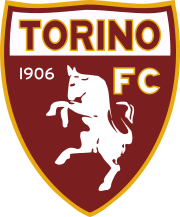 |
| Full name |
Torino Football Club SpA |
| Nickname(s) |
I Granata (The Clarets),
Il Toro (The Bull) |
| Founded |
1906 (AC Torino)
2005 (Torino FC) |
| Ground |
Stadio Olimpico
(Capacity: 27,994) |
| Chairman |
 Urbano Cairo Urbano Cairo |
| Head Coach |
 Franco Lerda Franco Lerda |
| League |
Serie B |
| 2009–10 |
Serie B, 5th |
|
|
|
 Current season Current season |
Torino Football Club, commonly referred to as simply Torino, is an Italian professional football club based in Turin, Piedmont, that was founded in 1906. The club has spent most of its history in the top tier in Italian football, though they are currently playing in the Italian Serie B. Torino, who play in claret shirts with white shorts, have won Serie A seven times, first in 1927–28 and most recently in 1975–76. They have also won the Coppa Italia five times. On the European stage, the nearest Torino came to success was when they finished as runners-up in the UEFA Cup; this was achieved in 1991–92. Historically, Torino are the joint fifth most successful club in Italian football in terms of championships won. The club was known as Associazione Calcio Torino until 1970, and as Torino Calcio from 1970 to 2005.
History
Foot-Ball Club Torino was founded on 3 December 1906 after a meeting at the Voigt brewery in Via Pietro Micca near the center of Turin. Its foundation involved some Juventus dissidents led by Alfredo Dick, who had left the bianconeri after some at the club wanted to move Juventus out of Turin.[1] As well as Alfredo Dick, other prominent founders included the Swiss businessman Hans Schoenbrod (first chairman), and Vittorio Pozzo (later manager of Italy).[2] The first ground for FBC Torino would be Velodromo Umberto I in the La Crocetta neighbourhood, for which Dick owned the lease. Torino lured some players from other clubs, including FBC Torinese who became defunct as a result.[3] The fact that Torino's split from Juve was not amicable, saw the rise of a heated local known as the Derby della Mole.[4]
Torino F.C. took part in the world's first international tournament, Torneo Internazionale Stampa Sportiva 1908 which was hosted in Turin itself organised by the Italian magazine La Stampa Sportiva. Torino lost in the final 3-1 to Swiss side Servette.[5] In 1909 it was succeeded by the Sir Thomas Lipton Trophy, in which a Torino XI composed of Juve and Torino players participated but did not make it to the final.[6] After the early years, Torino were denied their first championship attempt by the outbreak of World War I, and their first title was revoked in 1926/27 due to an irregularity in the match against Juventus. Torino won its first Scudetto, the Italian Serie A league Championship, the following 1927/28 season and, between 1942/43 and 1948/49, the "Grande Torino" (Great Torino), widely considered the best ever team in Italian football history, won five other straight scudetti, led by its captain, Valentino Mazzola. On May 4, 1949, all but one player (who was out for an injury) of Grande Torino were killed when their plane crashed into the hills of Superga, on the outskirts of Turin. The club never recovered, and after a decade of mediocre seasons, they were relegated to Serie B in 1958/59, although they returned to Serie A the following season. By the early 1960s and until the late 1980s, Torino had good results in Serie A, including another Scudetto in the 1975/76 season. Since the end of the 1980s, the club went up and down between Serie A and Serie B, the top two divisions with little success, except a Coppa Italia in 1992/93 and a Mitropa Cup win in 1990/91. Among the best results ever achieved in the club's history, it reached the UEFA Cup Final in 1991/92 only to lose it in two aggregate matches to Ajax Amsterdam without being defeated.

Old logo for Torino Calcio, used until 2005.
In 2004/05, Torino finished 3rd in Serie B and, after winning the playoffs, was promoted back in Serie A. However, the FIGC, the governing body of Italian football, expelled both Torino Calcio and F.C. Messina from Serie A, due to both clubs' financial problems. However, while Messina was re-admitted by a civil court of appeal, Torino was not and it was cancelled from the Italian sport panorama. The club has lost players likes Gaby Mudingayi, Gianluca Comotto, Andrea Mantovani, Federico Balzaretti, Robert Acquafresca, Gianluca Comotto, Diego De Ascentis, Massimo Marazzina, Fabio Quagliarella and Federico Marchetti which all became a regular player in Serie A for other team, due to FIGC allowed them left the club on free transfer.
Thanks to the 'Lodo Petrucci' (Italian law which allows a sport club that is the direct heir of a cancelled one to be re-admitted one division below the previous one), a new club was founded under the current name Torino F.C. and was admitted to play the next season, again in Serie B. Bought by entrepreneur Urbano Cairo, Torino FC ended its 2005/2006 Serie B campaign in third place, being therefore qualified for the promotion play-offs. Torino subsequently defeated Mantova in the final to earn promotion to Serie A. Even in its worst seasons, Torino has often achieved good results in epic matches (the so-called "derbies") against the other Turin team, Juventus. From 1990 to 2006 the club played in the 69,040 capacity Stadio Delle Alpi, shared with Juventus. Prior to 1990 the clubs shared the Stadio Comunale for thirty years, Torino moving there from the glorious Stadio Filadelfia, home of Grande Torino. Starting from the 2006/07 season Torino moved into a new, smaller ground of its own, the Stadio Olimpico di Torino (which is the renewed former stadio comunale), which Juventus currently share, which will be renamed the Stadio Grande Torino when Juventus return to the Stadio Delle Alpi. Actually the Stadio delle Alpi (that is of Juventus Turin propriety) is closed for a future rebuilt: after that maybe Torino will still use it for a number of high profile matches. When playing at home Torino wears a claret top and white shorts (sometimes is full claret) but when playing else where the team wears all white. When practicing Torino wears red and white or red and black.

A lineup of the Grande Torino.
Il Grande Torino
Grande Torino ("The Great Torino") is the name by which the Torino F.C. team of the 1940s is popularly known in Italy. Grande Torino set many important records of Italian football, all of which still stand today. Grande Torino played with an attacking 4-2-4 formation, 10 years before the Brazil 1958 World Cup team, and some of their game tactics inspired the Dutch Total Football that revolutionized the game in the 1970s. The all-star starting lineup of Grande Torino that died at Superga is the most famous in Italian football history: Valerio Bacigalupo, Aldo Ballarin, Virgilio Maroso, Pino Grezar, Mario Rigamonti, Eusebio Castigliano, Romeo Menti, Ezio Loik, Guglielmo Gabetto, Valentino Mazzola, and Franco Ossola; the son of Ossola is now the major biographer of the Club's history. The Italy national football team starting lineup in the second half of the forties consisted almost entirely of Grande Torino players, which regularly contributed 8-9 starters. On May 11, 1947, for the friendly match between Italy and Hungary 3-2, the Azzurri starting lineup was made of 10 Grande Torino players plus the Juventus goalkeeper Sentimenti IV. Italian manager Vittorio Pozzo reserved the Azzurri starting keeper Valerio Bacigalupo; otherwise it would have been the whole Grande Torino team playing for Italy. Legendary captain Valentino Mazzola was also the captain of the Italy national football team as well as the father of Sandro Mazzola, who was also a great champion playing for Internazionale Milano and Italy in the 1960s-70s. Valentino was an all-around midfield playmaker who could direct the team, pass, score, tackle, defend, inspire and lead his teammates.
Rivalries
Torino's traditional rivals are their crosstown neighbours Juventus, with whom they contest the Derby della Mole. While Juventus has a more widespread support internationally, Torino's fan base tends to be more localized. The derby between Torino and Juventus do not have the international standing of the Rome and Milan's derbies, but is strongly felt in Turin and Italy. Juventus is the team with more supporters in the Bel Paese, but Torino is Turin's first team. The mixture is explosive, and in the years when the teams meet, the atmosphere is always hot with frequent riots. They did not contest the derby during the 2009-10 season due to Torino's relegation the previous season.
Grande Torino records
- Joint holder of most consecutive Italian Serie A league titles (5), from 1943 to 1949 (1942/43, 1945/46, 1946/47, 1947/48, 1948/49; in 1944 and 1945 no league matches were played because of World War II). This tied Juventus' record from 1931-35, and Inter equalled it from 2006-10.
- Most consecutive seasons undefeated at home: 4 straight seasons (1945/46, 1946/47, 1947/48, 1948/49)
- Most consecutive league matches undefeated at home: 93 straight matches, with 83 wins and 10 draws (from January 24, 1943 to April 30, 1949) and just two visiting teams that didn't allow any goal.
- Most points in one season (before the 3 points per win rules): 65 points (1947/48)
- Biggest ever advantage on the English average: 6 points above (1946/47)
- Greatest ever home win: 10-0 to Alessandria (1947/48)
- Greatest ever away win: 0-7 to AS Roma (1945/46 Serie A Finals)
- Most wins in one season (16 teams league): 20 wins in 30 matches (1942/43)
- Most wins in one season (21 teams league): 29 wins in 40 matches (1947/48)
- Most home wins in one season: 19 wins on 20 matches (1947/48)
- Most away wins in one season (16 teams league): 10 wins in 15 matches (1942/43)
- Most home points in one season: 39 points on 40 available (1947/48)
- Most away points in one season (16 teams league): 22 points on 30 available (1942/43)
- Fewest home points lost in one season: 1 point on 40 available (1947/48 and 1948/49)
- Fewest away defeats in one season: 3 defeats on 19 matches (1946/47 and 1948/49)
- Most goals scored in one season: 125 goals (1947/48)
- Most home goals scored in one season: 89 goals (1947/48)
- Most away goals scored in one season (16 teams league): 31 goals (1942/43)
- Most goals scored in the 5 championship seasons: 408 goals scored (1942/43, 1945/46, 1946/47, 1947/48, 1948/49)
- Fewest goals suffered in one season (21 teams league): 33 goals (1947/48)
- Fewest away goals suffered in one season (16 teams league): 9 goals (1942/43)
- Best ever percentage of goals scored in one season: 3.125 goals per match (1947/48)
- More points in the second half of the season: 36 points on 40 available (1947/48)
The Superga tragedy
On May 4, 1949, after having secured their record fifth back-to-back Serie A title, and on their way home after a friendly match with Benfica in Lisbon, Portugal, the airplane carrying Grande Torino crashed against the Basilica of Superga, on a hill near Turin, killing nearly all the players and managers.[7]
Current squad
As of September 1, 2010[8][9] Note: Flags indicate national team as has been defined under FIFA eligibility rules. Players may hold more than one non-FIFA nationality.
| No. |
|
Position |
Player |
| 1 |
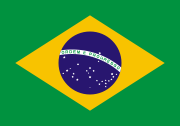 |
GK |
Rubinho (on loan from Palermo) |
| 4 |
 |
MF |
Luca Belingheri |
| 5 |
 |
DF |
Valerio Di Cesare |
| 6 |
 |
DF |
Angelo Ogbonna |
| 7 |
 |
MF |
Daniele De Vezze |
| 8 |
 |
FW |
Mario Salgado |
| 9 |
 |
FW |
Rolando Bianchi (captain) |
| 10 |
 |
FW |
Antimo Iunco |
| 11 |
 |
MF |
Christian Obodo (on loan from Udinese) |
| 14 |
 |
FW |
Alessandro Sgrigna |
| 16 |
 |
DF |
Luciano German Zavagno |
| 17 |
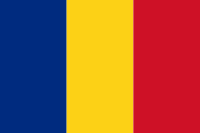 |
MF |
Sergiu Suciu |
| 18 |
 |
MF |
Andrea Gasbarroni |
| 19 |
 |
MF |
Giuseppe De Feudis |
| 20 |
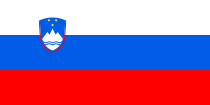 |
FW |
Dejan Lazarević (on loan from Genoa) |
| 21 |
 |
DF |
Agostino Garofalo |
|
|
| No. |
|
Position |
Player |
| 22 |
 |
MF |
Isaac Cofie (on loan from Genoa) |
| 23 |
 |
MF |
Filipe Oliveira (on loan from Parma) |
| 24 |
 |
MF |
Jürgen Säumel |
| 27 |
 |
MF |
Paolo Zanetti |
| 30 |
 |
MF |
Umberto Miello |
| 31 |
 |
GK |
Davide Morello |
| 32 |
 |
DF |
Claudio Rivalta |
| 36 |
 |
DF |
Gaetano Carrieri |
| 41 |
 |
GK |
Davide Bassi (on loan from Empoli) |
| 44 |
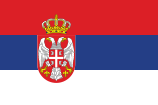 |
MF |
Alen Stevanović |
| 50 |
 |
DF |
Francesco Pratali |
| 81 |
 |
FW |
Alessandro Pellicori (on loan from Q.P.R.) |
| 86 |
 |
MF |
Luigi Alberto Scaglia |
| 88 |
 |
DF |
Danilo D'Ambrosio |
| 90 |
 |
FW |
Gianmario Comi |
|
Out on loan
Note: Flags indicate national team as has been defined under FIFA eligibility rules. Players may hold more than one non-FIFA nationality.
| No. |
|
Position |
Player |
| 18 |
 |
GK |
Lys Gomis (at Foggia) |
|
For all transfers and loans pertaining to Torino for the current season, please see 2010 Italian summer transfers.
Managerial history
Torino have had many managers and trainers, some seasons they have had co-managers running the team, here is a chronological list of them from 1912 onwards.[10]
| |
| Name |
Nationality |
Years |
| Vittorio Pozzo |
 |
1912–1922 |
| Karl Sturmer |
 |
1922–1924 |
| Peter Farmer |
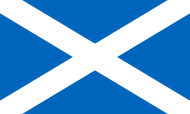 |
1924–1926 |
| Amerigo Schoeffer |
 |
1926–1927 |
| Tony Cargnelli |
 |
1927–1929 |
| Karl Sturmer |
 |
1929–1930 |
| Vittorio Morelli di Popolo |
 |
1930–1931 |
| Adolfo Baloncieri |
 |
1931–1932 |
| Francesco Hansel |
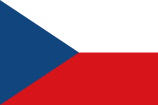 |
1932–1933 |
| Eugen Payer |
 |
1933–1934 |
| Augusto Rangone |
 |
1934 |
| Tony Cargnelli |
 |
1934–1937 |
| Gyula Feldmann |
 |
1937–1938 |
| Antonio Janni |
 |
1938 |
| Egri Erbstein |
 |
1938–1939 |
| András Kuttik |
 |
1939–1940 |
| Angelo Mattea |
 |
1940 |
| Tony Cargnelli |
 |
1940–1942 |
| András Kuttik |
 |
1942–1943 |
| Vittorio Pozzo |
 |
1944 |
| Luigi Ferrero |
 |
1945–1947 |
Mario Sperone
Roberto Copernico |

 |
1947–1948 |
Leslie Lievesley
Egri Erbstein |

 |
1948–1949 |
Giuseppe Bigogno
Roberto Copernico |

 |
1949–1951 |
| Mario Sperone |
 |
1951–1952 |
| Oberdan Ussello |
 |
1952–1953 |
| Jesse Carver |
 |
1953–1954 |
| Annibale Frossi |
 |
1954–1956 |
| Fioravante Baldi |
 |
1956–1957 |
| Blagoje Marjanović |
 |
1957–1958 |
| Fioravante Baldi |
 |
1958 |
| Federico Allasio |
 |
1958–1959 |
| Quinto Bertoloni |
 |
1959 |
| Imre Senkey |
 |
1959–1960 |
| Giacinto Ellena |
 |
1960 |
| Beniamino Santos |
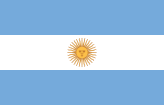 |
1960–1963 |
| Giacinto Ellena |
 |
1963 |
| Nereo Rocco |
 |
1963–1966 |
Marino Bergamasco
Nereo Rocco |

 |
1966–1967 |
| Edmondo Fabbri |
 |
1967–1969 |
|
|
| Name |
Nationality |
Years |
| Giancarlo Cadè |
 |
1969–1971 |
| Gustavo Giagnoni |
 |
1971–1974 |
| Edmondo Fabbri |
 |
1974–1975 |
| Luigi Radice |
 |
1975–1980 |
| Ercole Rabitti |
 |
1980–1981 |
| Romano Cazzaniga |
 |
1981 |
| Massimo Giacomini |
 |
1981–1982 |
| Eugenio Bersellini |
 |
1982–1984 |
| Luigi Radice |
 |
1984–1989 |
| Claudio Sala |
 |
1989 |
| Sergio Vatta |
 |
1989 |
| Eugenio Fascetti |
 |
1989–1990 |
| Emiliano Mondonico |
 |
1990–1994 |
| Rosario Rampanti |
 |
1994–1995 |
| Nedo Sonetti |
 |
1995–1996 |
| Francesco Scoglio |
 |
1996 |
| Lido Vieri |
 |
1996 |
| Mauro Sandreani |
 |
1996–1997 |
| Lido Vieri |
 |
1997 |
| Giancarlo Camolese |
 |
1997–1998 |
Graeme Souness
Edoardo Reja |

 |
1998 |
| Emiliano Mondonico |
 |
1998–2000 |
| Luigi Simoni |
 |
2000–2001 |
| Giancarlo Camolese |
 |
2001–2002 |
| Renzo Ulivieri |
 |
2002–2003 |
| Renato Zaccarelli |
 |
2003 |
| Giacomo Ferri |
 |
2003 |
| Ezio Rossi |
 |
2003–2005 |
| Renato Zaccarelli |
 |
2005 |
| Daniele Arrigoni |
 |
2005 |
| Paolo Stringara |
 |
2005 |
| Gianni De Biasi |
 |
2005–2006 |
| Alberto Zaccheroni |
 |
2006 |
| Gianni De Biasi |
 |
2006–2007 |
| Walter Novellino |
 |
2007–2008 |
| Gianni De Biasi |
 |
2008 |
| Walter Novellino |
 |
2008–2009 |
| Giancarlo Camolese |
 |
2009 |
| Stefano Colantuono |
 |
2009 |
| Mario Beretta |
 |
2009–2010 |
| Stefano Colantuono |
 |
2010 |
| Franco Lerda |
 |
2010-2011 |
|
Honours
National
-
- Champions (7): 1927–28, 1942-43, 1945-46, 1946-47, 1947-48, 1948-49, 1975–76 1
- Runners-up (7): 1907, 1914-1915, 1928-1929, 1938-1939, 1941-1942, 1976-1977, 1984-1985
-
- Champions (5): 1935-36, 1942-43, 1967-68, 1970-71, 1992-93
- Runners-up (8): 1937-38, 1962-63, 1963-64, 1969-70, 1979-80, 1980-81, 1981-82, 1987-88
-
- Champions (3): 1959-60, 1989-90, 2000-01
- Serie A Playoffs (2): 2004-05; 2005-06
-
Notes:
^1 Torino won the title in the 1926-27 season, but it was later revoked.
International
-
-
- Memorial Pier Cesare Baretti
-
- Winners (1): 1990
- Runners-up (1): 1993
Youth
- Italian Youth Championship (record)
- 1966/67 - 1967/68 - 1969/70 - 1976/77 - 1984/85 - 1987/88 - 1990/91 - 1991/92
- Italian Youth Cup (record)
- 1982/83, 1983/84, 1985/86, 1987/88, 1988/89, 1989/90, 1998/99
- Viareggio International youth Tournament
- 1984, 1985, 1987, 1989, 1995, 1998
Notable players
Shirt sponsors and manufacturers
|
|
|
- 2000-01 Directa (financial products)
- 2001-02 Conto Arancio (net-banking)
- 2002-03 Ixfin (electronic products)
- 2003-05 Bavaria (beer)
- 2005-08 Reale Mutua (insurance) - Beretta (sausages)
- 2008-09 Renault Trucks (trucks and commercial vehicles) - Reale Mutua (insurance)
- 2009-10 Italporte (doors/windows) - Dahlia TV (pay tv)
|
Kit manufacturer
References
External links
|
Serie B seasons |
|
| Serie B seasons |
1929–30 · 1930–31 · 1931–32 · 1932–33 · 1933–34 · 1934–35 · 1935–36 · 1936–37 · 1937–38 · 1938–39 · 1939–40 · 1940–41 · 1941–42 · 1942–43 · 1943–44 · 1944–45 · 1945–46 · 1946–47 · 1947–48 · 1948–49 · 1949–50 · 1950–51 · 1951–52 · 1952–53 · 1953–54 · 1954–55 · 1955–56 · 1956–57 · 1957–58 · 1958–59 · 1959–60 · 1960–61 · 1961–62 · 1962–63 · 1963–64 · 1964–65 · 1965–66 · 1966–67 · 1967–68 · 1968–69 · 1969–70 · 1970–71 · 1971–72 · 1972–73 · 1973–74 · 1974–75 · 1975–76 · 1976–77 · 1977–78 · 1978–79 · 1979–80 · 1980–81 · 1981–82 · 1982–83 · 1983–84 · 1984–85 · 1985–86 · 1986–87 · 1987–88 · 1988–89 · 1989–90 · 1990–91 · 1991–92 · 1992–93 · 1993–94 · 1994–95 · 1995–96 · 1996–97 · 1997–98 · 1998–99 · 1999–00 · 2000–01 · 2001–02 · 2002–03 · 2003–04 · 2004–05 · 2005–06 · 2006–07 · 2007–08 · 2008–09 · 2009–10 · 2010–11
|
|
| Other† |
Serie B-C Alta Italia 1945–46
|
|
| †Championships recognized as official by the Italian Football Federation |
|
|
Football in Italy |
|
| Overview |
|
|
| International |
Italy · Under-21 · Under-20 · Under-19 · Under-17 · Italy women
|
|
| Leagues |
Lega Serie A · Lega Serie B · Lega Pro · Lega Nazionale Dilettanti · Lega Calcio (folded)
|
|
| League competitions |
|
|
| Cup competitions |
Coppa Italia · Supercoppa Italiana · Coppa Italia Lega Pro · Supercoppa di Lega di Prima Divisione · Supercoppa di Lega di Seconda Divisione · Coppa Italia Serie D · Coppa Italia Dilettanti
|
|
| Youth competitions |
Campionato Nazionale Primavera · Coppa Italia Primavera · Supercoppa Primavera · Torneo di Viareggio · Campionato Nazionale Dante Berretti
|
|
| Awards |
Oscar del Calcio AIC
|
|
| Statistics |
All-time Serie A table
|
|
| Miscellaneous |
Totonero 1980 · Totonero 1986 · Serie A scandal · Foreign Serie A players · Foreign Serie B players · France-Italy rivalry |
|


